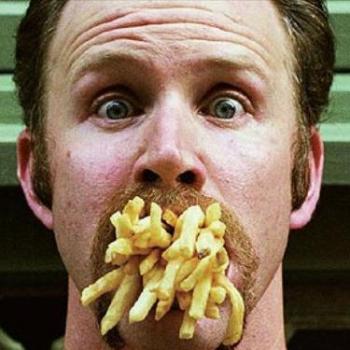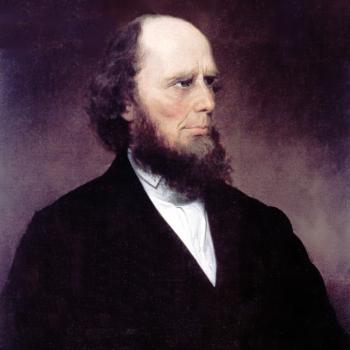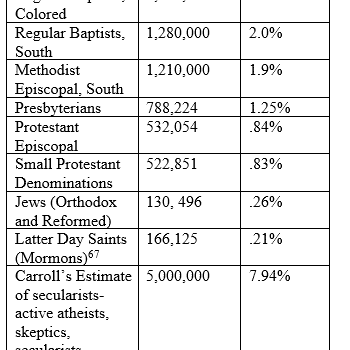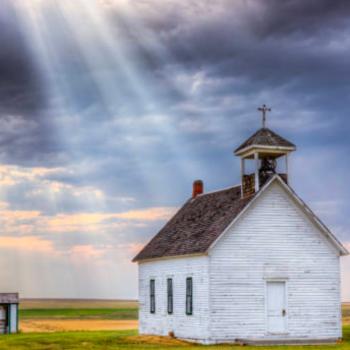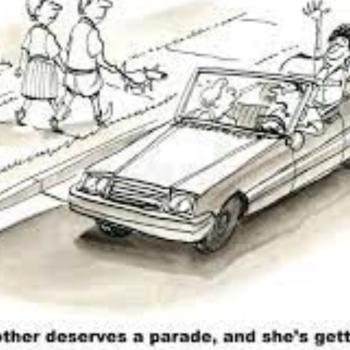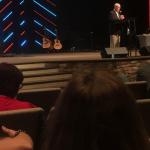
courtesy: Wikipedia
Was Robin Hood a good guy or a criminal?
Why is it that we cheer for Robin Hood and his band of merry men and against the villainous Sheriff of Nottingham? After all, was not Robin Hood a thief? Did he not break the commandment—“Thou shall not steal”?
Les Miserable: Was Jean Valjean and the priest’s actions worthy of criminal prosecution?
You likely know the story of Jean Valjean in the acclaimed Les Miserable. He was a crook—well he stole some bread to feed his starving kids—and he spent 20 years in prison doing hard labor.
The question is: “Did he deserve to go to prison for his theft?” Note the question is not, “Did he deserve 20 years of hard labor?” but, “Did he deserve to be punished at all?” Should he have been punished for stealing?
As the story progresses, Valjean is released. Given nothing but the clothes on his back, Valjean commits a far more heinous act than his original stealing of bread to feed his starving kids. He steals a large amount of silver from a priest—a priest who was kind enough to give him food and a comfortable bed for the night. In addition, Valjean assaults the priest before he scurries off with the silver.
He doesn’t make it very far, however. After being captured by the local police, they bring Valjean to the priest’s home to verify his story. You see, Valjean not only stole the goods and assaulted the priest, he also lied by telling the authorities that the priest gave him the silver.
Note that at this point in the story, the audience is fearful that Valjean will go back to prison—likely for the rest of his life. But why are we rooting for the criminal? Why do we want to see him go free?
Incredulously, the priest, after being questioned by the authorities, confirms Valjean’s story. In fact, the priest “chastises” Valjean for not taking the “candlesticks” also: “I told you to take the candlesticks,” he exclaims.
At this point, the audience is relieved. After all, Valjean had already suffered 20 years of hard labor. Our relief that Valjean is free, however, means that his crimes of theft and assault against the priest, as well as his lying to the authorities, go unpunished. Are we supposed to condone the circumventing of the law?
Furthermore, the priest also lied to the authorities, which led to a criminal being set free. Yet, we seemingly know in our hearts his mercy was right: somehow justice has won.
NB: we cannot argue that the priest’s grace was justified because Valjean reformed himself and became a source of justice for many. Such “ends-justifies-the-means” thinking is not biblically justified.
Does a child always have to honor their parents?
I was raised in a broken home. My father left when I was quite young—I might have been 8 (I honestly don’t know how old I was because my father was never around much. So things didn’t really change when he left). After my dad left, my mom decided that we should “go back” to church. I didn’t really know what “going back” to church meant since I don’t recall ever going to church.
Long story short, I became a Christian a few years later. During my teenage years, I struggled with what it meant to honor my father. I felt a burden that I had some sort of “Christian” duty to honor him even though he abandoned us and never sought to have a relationship with me.
What about the child of an abusive parent? Are they supposed to honor their parents even though doing so will likely add to their suffering?
NB: I will offer some thoughts on this one. I am firmly convinced that a child has no obligation to “honor” an abusive parent. And the church must be careful about placing such a burden on a child who has already suffered gross injustice. To suggest that the child must do so is to misunderstand what the command to honor one’s parent even means and to radically undermine the purpose of the Law—as I will explain below and in the next post.
Were the Disciples working on the Sabbath?
In Mark 2:23-28, we encounter a story in which Jesus and His disciples are walking through a grainfield on the Sabbath—which in itself could have been problematic since traveling more than “a Sabbath day’s journey” (Acts 1:12)—approximately ¾ of a mile—was not permitted on the Sabbath (Mark 2:23). While walking, the disciples began “plucking heads of grain” (Mark 2:23), which was considered “harvesting” and therefore constituted “working” on the Sabbath.
NB: The documentary “The Chosen”—which my wife and I have really enjoyed—portrays this scene. In their presentation, Peter is confronted for his act of “harvesting” on the Sabbath and he replies, “I didn’t know it was the Sabbath.” This is a bit of a stretch. All Jews know would have known that it was the Sabbath.
When Jesus is confronted about “doing what is not lawful on the Sabbath” (Mark 2:24), He does not reply, “Well, the Laws don’t apply because I have come to do away with them.” Nor does He contend that the disciples were not working: “You are wrong about what it means to ‘work.’”
Instead, Jesus appeals to the acts of David and his men and how they ate bread that was reserved for the priests (Mark 2:25-26). Then He adds, “The Sabbath was made for man, and not man for the Sabbath” (Mark 2:27).
Jesus heals a man on the Sabbath
In Mark 3:1-6, Jesus “entered again into a synagogue; and a man was there whose hand was withered” (Mark 3:1). If you have been reading about Jesus for some time, you know what is going to happen.
Mark continues, “They [the Pharisees] were watching Him to see if He would heal him on the Sabbath” (Mark 3:2). Yep, we knew it. And Jesus, of course, proceeds to do exactly that (Mark 3:5). As a result of Jesus’ “flagrant” disregard for the Sabbath, the Pharisees left and began to seek Jesus’ death (Mark 3:6).
We would do well to note, however, that Jesus again does not dispute their interpretation of the law. He doesn’t suggest, “Guys, it’s okay. I am not a doctor, so any healing I do is not actually work.”
Making sense of all this
Why is it that we know in our hearts that Robin Hood is a hero and that Jean Valjean deserved the mercy given to him by the Priest? How can we justify the priest’s lying to the authorities? We seemingly know that the priest was Christlike when he willingly broke the law and lied to the authorities.
Hopefully, we recognize that an abused child has no obligation to honor his/her parents. We also know that neither the disciples “harvesting” nor Jesus’ healing on the Sabbath were sins.
But how do we make sense of all this without leading to lawlessness or arbitrariness?
That is, if we just say that the priest was justified in giving mercy to Valjean, then how do we determine when giving mercy overrides the command to not lie? And, if we say that Robin Hood was just, how do we determine when it is okay to steal? And what about Jesus and His disciples’ actions?
When is it okay to break the 10 commandments?
The conundrums that these illustrations present us with are problems only when we absolutize the commandments. That is, if we suggest that the commandments are unbreakable, then we must denounce Robin Hood, Jean Valjean, the abused child, the disciples, and Jesus.
How then do resolve this? And how are we supposed to discern when “violating” the commandments is acceptable?
There are 2 keys to understanding the laws and to resolve the tension. I will mention them here and then develop this thought in upcoming posts
First, we must understand what the laws mean.
Second, we must recognize what is the purpose of the Law.
The first of these is pretty simple. We must ask, “What does it mean that we cannot work on the Sabbath day?” Or, “What does it mean, ‘Thou shall not kill/murder?’”
Second, and more importantly, we must recognize what is the purpose of the Laws. Note that Jesus did not dispute that His disciples were not working on the Sabbath (Mark 2:23-28). Nor did He contend that He was working when He healed the man with the withered hand (Mark 3:1-6). He was arguing that they didn’t understand the very purpose of the Laws.
And unless we understand the purpose of the Laws we may well become like the religious leaders who sought Jesus’ death for breaking them.
To be continued . . .
Our goal is to keep these posts free of charge. I do not intend to ever hide them behind a paywall. I can only do this if those of you who have been blessed by them and can afford to give ($5, $10, $25, or more/month) do so. You can give a tax-deductible contribution by following this link.
Please share this post and let others know about determinetruth.
If you wish to view this blog on your smartphone through the Determinetruth app simply download the “tithe.ly church” app on your smartphone and insert “determinetruth” as the church name you wish to follow. Once it is loaded, simply click on the “blog” icon and it will automatically load.
If you would like to have Rob speak at your church or organization in person or via Zoom, please let us know by filling out the contact info on the Contact me tab on this site.




